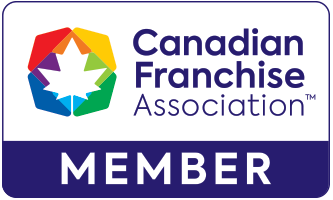During recent economic challenges and uncertainty, the number of Skipped and Delinquent Tenants is on the rise. Being a property manager brings with it the potential for serious risk, liability and consequences at a time when the scales of justice seem tipped in favour of the delinquent tenant. Once a tenant has gone delinquent, property managers must decide whether to proceed with legal action, and after all, if there is minimal probability of recovering the debt, why incur the costs of legal action?
Take legal action or not – don’t incur costs of legal action without knowing the prospect of satisfying the debt.
The QCR “Asset Accumulation Report” is designed specifically with your skipped or delinquent tenant in mind. Prior to incurring the cost of an expensive legal action – discover first what the prospect of collection or satisfying a judgment might be. It is the most comprehensive report offered in today’s market and has been successful in assisting the property management industry in making decisions regarding the next course of action. The Asset Accumulation Report will identify assets and liabilities and locate the skipped tenant for service purposes. This report will help make decisions at different stages, from the time the tenant first falls into arrears to the time the tenant makes the midnight move. The report assists in dealing with a rent abatement request or when considering terminating a tenant’s lease for unpaid rent. The report is an excellent decision-making tool for property managers, giving them the answers they need prior to sending a case to collection or a law firm.
What Information Does an Asset Accumulation Report Investigate?
Asset Accumulation Reports not only look at assets owned by the delinquent tenant but also liabilities. This will help give you and/or your lawyer a better idea of the probability of debt recovery.
When investigating your delinquent, QCR will look at the following:
Assets
- Real property - Locate real property assets, identifying fraudulent conveyances and spousal property.
- Personal property and motor vehicles - Identify personal property, including motor vehicles, equipment, goods, inventory, and accounts.
- Business interests and affiliations - Locate the debtor's or defendant’s business interests. We often find co-debtors and co-defendants that link debtor/defendant to other companies and businesses.
- Bank accounts - Identify banking relationships, which can be useful for garnishment during the debt recovery process.
- Rents - Identify this form of income.
- Wages - Locate the debtor's/defendant’s place of employment and salary, which will assist with the garnishment of wages.
Liabilities
- Tax liens - Locate tax liens, including PST, Corporate Tax, RST, HST and GST.
- Collections - Establish a history of collections to identify both debt and repayment history.
- Pending legal actions and judgments - Identify pending legal actions, judgments and particulars that will be significant in determining the probability of debt recovery.
- Credit card balances - Determine credit card debt.
- Secured and unsecured borrowing facilities - Identify term loans and operating lines.
- Mortgages - Confirm registered mortgages and executions on real property.
- Bankruptcies, consumer proposal and receiverships - Determine recent filings and details through the Superintendent of Bankruptcy.
Already Started the Litigation Process? – Is It Too Late to Use an Asset Accumulation Report?
While it is better to go into any debt recovery process with the most information possible, it is never too late to take a better look at your debtor or defendant to determine whether there is a probability of debt recovery.
An Asset Accumulation Report can help you at the following stages:
- Prior to commencing legal action.
- During pre-litigation settlement discussions.
- When preparing for discoveries. When preparing for an examination in Aid of Execution.
- During garnishment proceedings and during post-litigation settlement discussions.
At Quality Credit Reporting, we have years of experience helping property managers evaluate a tenant’s status, specializing in timely reports that assist in pre-judgment collections and post-judgment recovery.
For more information about our Asset Accumulation Report, download our Identify Delinquent Tenant’s Assets and Liabilities Brochure or contact us today.




